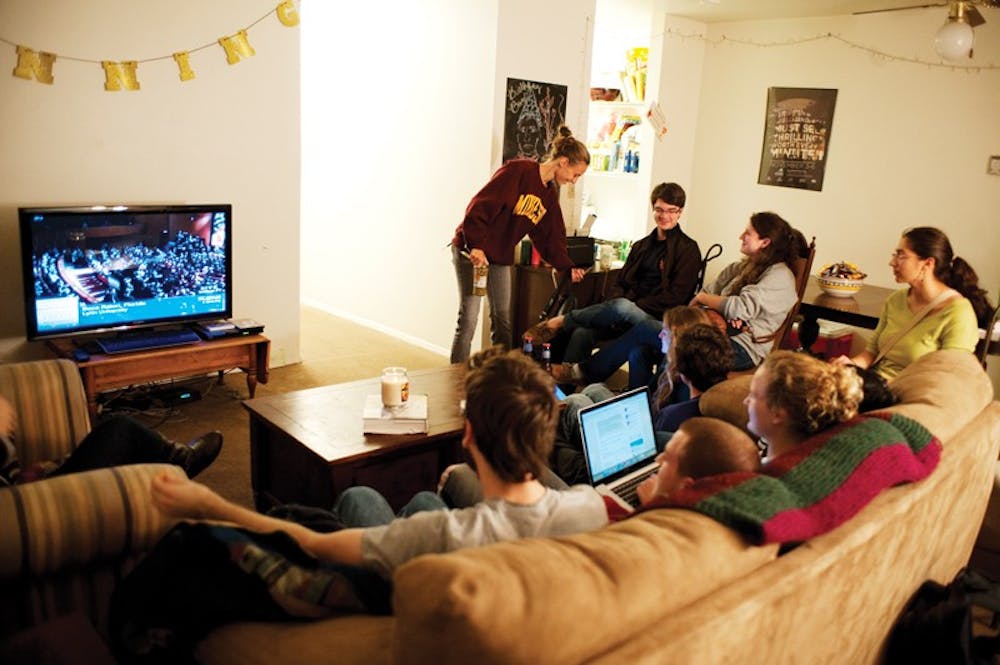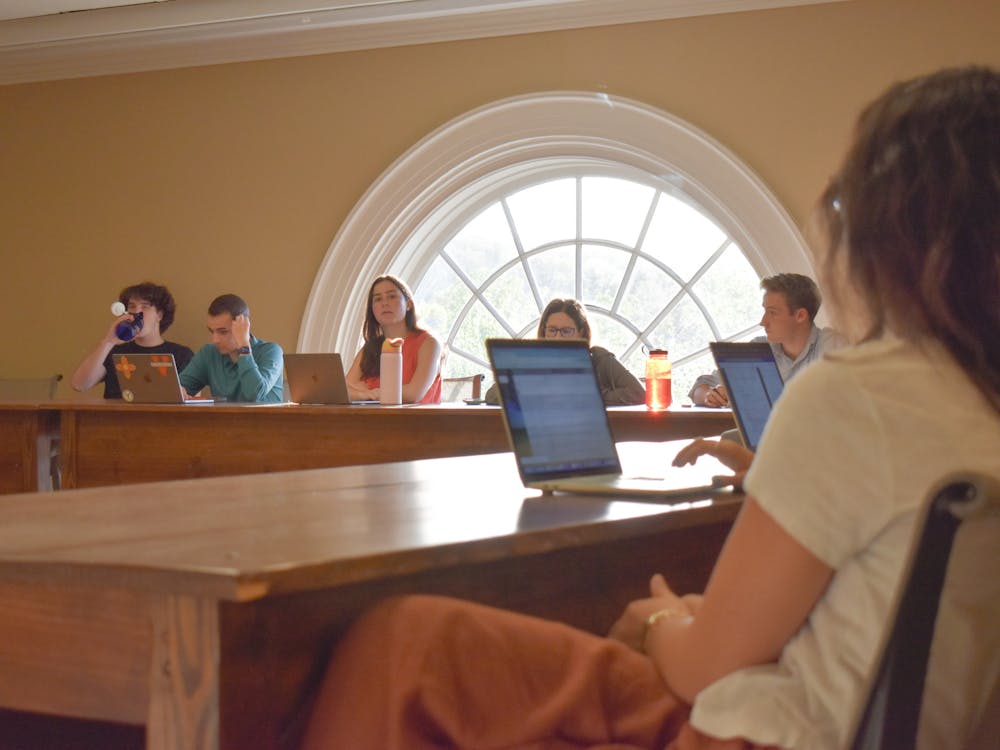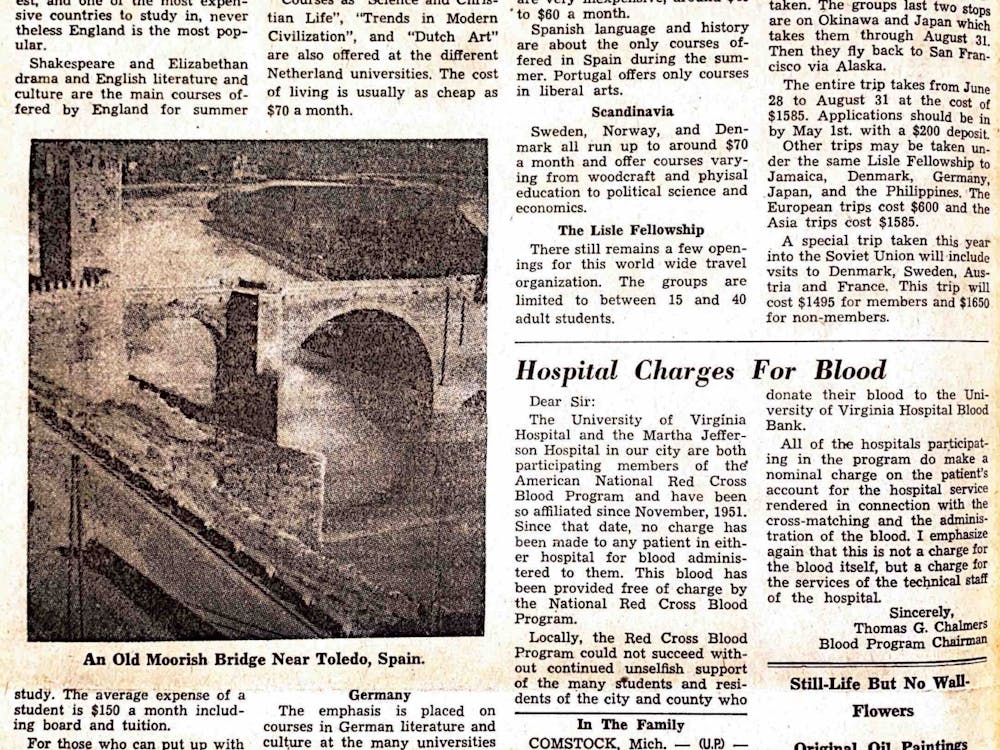President Barack Obama and GOP presidential candidate Mitt Romney faced off Monday evening in the third and final debate of 2012 election season to talk foreign policy. With recent national polls showing the candidates in a dead heat, University leaders say yesterday evening’s debate may be the deciding factor in the upcoming election.
Both candidates Monday evening agreed foreign policy challenges must be met through continued dialogue with U.S. allies. Bob Schieffer, host of CBS’s “Face the Nation,” moderated the debate.
The presidential hopefuls disagreed on the level of force required to maintain U.S. dominance in the international community. Romney said Obama’s policies had diminished U.S. influence abroad.
“Nowhere in the world is America’s influence greater today than it was four years ago,” he said.
Romney is leading the race among likely Virginia voters with 50 percent to Obama’s 47 percent, according to a survey conducted last week by the public opinion group Rasmussen Reports with a 4 percent margin of error. The group also gave Romney a two-point advantage in the national race with a 3 percent margin of error.
Presidential debates can often play a decisive role in the election, particularly in close races such as this one, “probably more than any one that we can remember,” said Jeff Chidester, director of public programs at the Miller Center.
Monday’s foreign policy-oriented debate may not play as crucial a role as the candidates’ previous two meetings, Chidester said. “Romney needs to show he’s competent in foreign affairs and needs to redirect that his central focus is in the economy,” he said. “Obama needs to talk up his strong point, which is his foreign policy record.”
Candidates immediately began sparring as Schieffer presented questions about the challenges of “a changing Middle East,” citing the recent conflict in Libya.
“We can’t kill our way out of this mess,” Romney said.
Obama cited the end of the war in Iraq and the country’s withdrawal from Afghanistan as evidence of his success as commander in chief. He lambasted Romney’s outdated foreign-policy strategy, deeming it reminiscent of international relations in the 1980s.
Romney’s strategy would include a plan to encourage the Middle East to address extremism internally rather than through reliance on external powers, he said. “The key that we’re going to have to pursue is a pathway to get the Muslim world to be able to reject extremism on its own,” Romney said. He proposed increased economic development, education, gender equality and establishing civil societies as steps for enacting change in the region.
Obama also said Romney had shifted his views on Iraq, alleging the former Massachusetts governor had previously supported the troop surge despite finding no weapons of mass destruction.
Obama also said the United States needs to stand by Israel, calling the nation “a true friend and our greatest ally in the region.”
“We cannot afford to have a nuclear arms race in the most volatile region of the world,” Obama said.
University leaders were split on the outcome. College Republicans Chairman Matt Wertman, a third-year Architecture student, said he believed Romney had held his own against the president.
“He proved himself on foreign policy issues, and on issues that relate to our allies,” Wertman said. “I think tonight’s strong performance will help, particularly in the swing states.”
University Democrats President James Schwab, a fourth-year College student, said he thought Obama had won. “I think the president laid out his vision on foreign policy pretty clearly,” he said. “His opinions were largely echoed by Romney so I think that’s an indicator that President Obama is doing a good job.”
The real impact of the debate, held at Lynn University in swing state Florida, will become apparent come Election Day.
“Glancing down Twitter. Shocker: All Ds think O won, all Rs think R won,” Larry Sabato, director of the University’s Center for Politics, tweeted.





